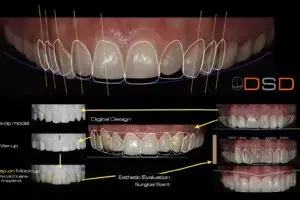Stress is a common part of life, but it can also have a negative impact on your oral health. Whether you’re dealing with work pressures, personal struggles, or general anxiety, stress can manifest in several ways that affect your teeth, gums, and overall oral hygiene. In this article, we will explore the link between stress and oral health, discuss common oral health problems caused by stress, and offer tips for managing stress to protect your smile.
Common Oral Health Problems Linked to Stress
Stress affects the body in numerous ways, and your mouth is no exception. Here are some common oral health issues that are closely linked to stress:
Teeth Grinding (Bruxism)
Teeth grinding, or bruxism, is one of the most common stress-related oral health issues. When stressed, many people grind or clench their teeth unconsciously, especially while sleeping. This can cause significant wear on your teeth, leading to enamel erosion, cracked teeth, and jaw pain. Over time, bruxism can lead to more serious dental problems, including tooth loss or the need for dental restoration.
Jaw Clenching
Similar to teeth grinding, jaw clenching is another common stress response. People under stress tend to clench their jaw throughout the day, often without even realising it. This can put a lot of pressure on the muscles and joints, leading to discomfort, headaches, and even temporomandibular joint (TMJ) disorders. TMJ disorders can cause pain when chewing, as well as clicking or popping sounds in the jaw.
Gum Disease
Chronic stress can weaken the immune system, making it more difficult for your body to fight off infections, including gum disease. Stress also contributes to poor oral hygiene habits, such as skipping regular brushing or flossing, which increases the risk of gum disease. If left untreated, gum disease can lead to tooth loss and other serious health complications. Additionally, stress-induced habits like smoking or unhealthy eating can further increase your risk of gum problems.
Mouth Sores
Stress can trigger painful mouth sores such as canker sores and cold sores. These sores can make it difficult to eat, speak, and maintain good oral hygiene. The stress hormone cortisol can affect your immune system, triggering an outbreak of these sores. Some people may also experience more frequent occurrences of these sores during times of high stress.
Why Stress Affects Oral Health
Stress not only causes physical symptoms like teeth grinding but also influences your oral health on a deeper level. Here’s how stress can impact your teeth and gums:
Hormonal Changes
When you’re stressed, your body produces higher levels of hormones such as cortisol and adrenaline. These hormones can interfere with the body’s ability to fight off infections and maintain healthy teeth and tissues, including those in your mouth. Stress-related hormonal changes can make your gums more susceptible to inflammation, leading to conditions like gingivitis or periodontitis.
Weakened Immune System
Chronic stress can compromise your immune system, making it less effective at combating infections. When your body is under prolonged stress, it struggles to heal damaged tissue and fight off bacteria in the mouth. This can result in oral infections, such as gum disease, and make it harder to recover from any dental health procedures or issues.
Unhealthy Habits
When stressed, people often turn to unhealthy coping mechanisms such as smoking, drinking alcohol, or indulging in sugary foods. These habits can negatively affect your oral health. Smoking, for example, increases your risk of gum disease and tooth loss, while sugary foods contribute to cavities and plaque buildup. Additionally, stress can cause people to skip brushing and flossing, further contributing to oral health problems.

Managing Stress for Better Oral Health
Managing stress is key to maintaining both your mental and oral health. Here are some effective techniques to help reduce stress and protect your teeth and gums:
Relaxation Exercises
Practicing relaxation techniques can help reduce the physical symptoms of stress, such as teeth grinding and jaw clenching. Deep breathing exercises, meditation, and yoga are all great ways to relax your body and mind. These practices can also help lower cortisol levels and improve overall well-being.
Regular Exercise
Exercise is one of the best ways to combat stress. Physical activity releases endorphins, the body’s natural “feel-good” hormones, which can help improve mood and reduce anxiety. Even a brisk walk or a short workout can help release built-up tension and reduce the physical effects of stress, such as teeth grinding.
Proper Sleep
A lack of sleep can contribute to stress, which, in turn, affects your oral health. Try to get at least 7-8 hours of sleep each night to allow your body to recharge and recover. Proper sleep helps reduce stress levels and keeps your immune system functioning properly, which is essential for fighting off oral infections.
Avoiding Stress-Induced Habits
Be mindful of the habits you may develop in response to stress. For example, if you tend to clench your jaw or grind your teeth, consider using a mouthguard at night to protect your teeth from damage. Additionally, be conscious of unhealthy eating habits that stress may trigger, such as reaching for sugary snacks or skipping meals.
Regular Dental Checkups
Stress can make it easy to neglect your dental care routine, but regular dental checkups are essential for preventing and addressing stress-related oral health issues. A dentist can help identify signs of teeth grinding or jaw clenching and offer solutions to protect your teeth. They can also monitor your gums for early signs of gum disease, ensuring that any issues are treated early on.
Conclusion
Stress can have a profound impact on your oral health, from causing teeth grinding and jaw clenching to increasing your risk of gum disease and mouth sores. It’s essential to manage stress to protect your teeth and gums. By practicing relaxation exercises, exercising regularly, getting enough sleep, and avoiding stress-induced habits, you can reduce the negative effects of stress on your oral health.


